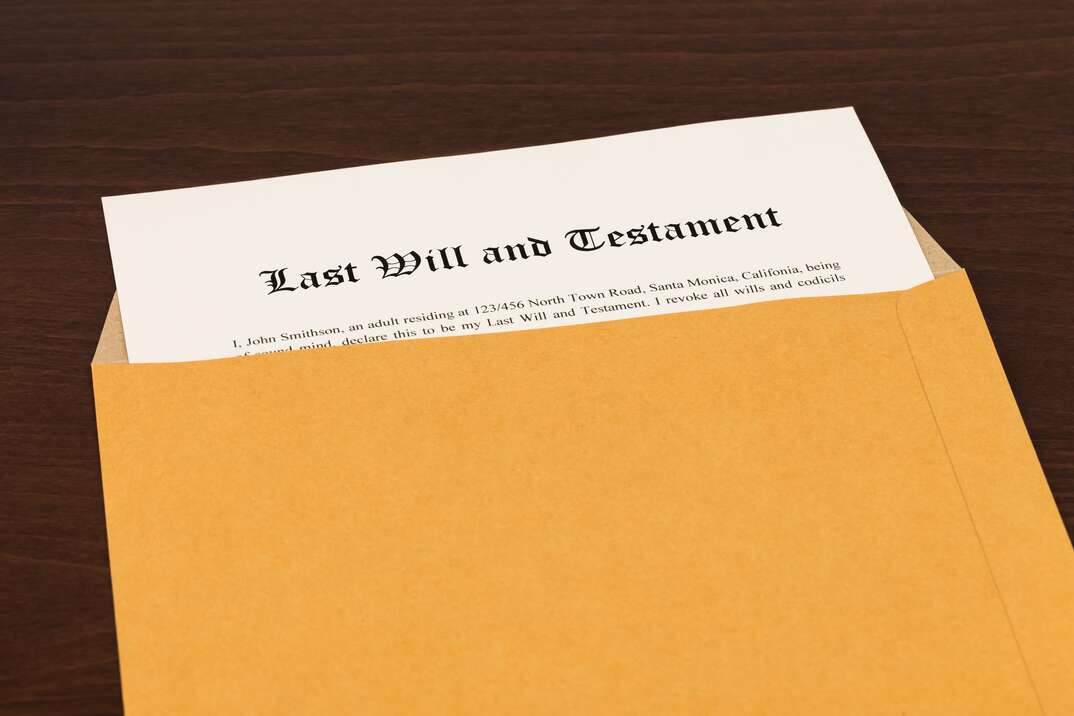- AppliancesElectriciansHVACLandscapingLocksmithPest ControlPlumbingRenovationRoofingT V RepairAll Home Improvement
- Car AccidentClass ActionCorporate LawCriminal DefenseDivorce LawEmployment LawFamily LawFinancial LawLegal AidMedical Injury LawyersMedical MalpracticeReal Estate LawWater Fire RestorationAll Legal
- InvestmentRetirementAll Finance
- Animal InsuranceAutoGeneral InsuranceHealth PolicyHome RentersAll Insurance
- DentalHealth SpecialistsAll Medical
- Animal CareVeterinaryAll Pets
- Auto GlassTowingAll Automotive
What Are My Rights as an Heir in Probate?

Estate law can be complex and confusing, which can lead to frustration and anxiety for heirs. This is especially true if you're involved in a lengthy probate process, which can delay the transfer of assets to heirs and beneficiaries. Throw in potential family dynamics, and the process can be even more difficult.
You may wonder whether there are rights of heirs to an estate that can protect your interests during this process. The short answer is yes, but estate heirs' rights are not unlimited.
An heir is anyone who has a legal claim to the assets of an estate after someone passes away. Typically, these are close relatives who have a right to inherit even absent a will. The order heirs inherit in depends on the inheritance laws in each state.
Heirs are different from beneficiaries. Beneficiaries are people who have a legal claim because they are named in a specific document, such as a will, trust or the beneficiary designation on a checking account or life insurance form. Beneficiaries don't have to be relatives listed in a state's inheritance structure. It's also possible to be both an heir and a beneficiary.
What Rights Do Heirs Have?
Heirs' rights may vary slightly by state, but the general concept of these protections is the same.
Do Heirs Have a Right to See the Will?
Once a will is filed, it becomes public record. Anyone can request a copy of a public record, and heirs certainly have the right to do so. Some states may require that heirs receive notice about the will or copies of the will.
However, before a will is filed — when the person is still living — heirs don't have a right to see the will. The person may keep the information in their will confidential.
The Right to Notice
Heirs have a right to be notified that they may have a potential inheritance interest in an estate. Typically, the estate executor or administrator must notify all heirs listed in a will, but state laws vary on who must be notified and how. In some cases, if the executor can't find an address for an heir, they must take out ads in newspapers and publish a notice the heir might see.
The Right to Object
Heirs have some limited rights in objecting to matters related to probate. For example, if an heir believes the executor of an estate is not acting fairly or with appropriate attention to the wishes written in the will, they might object by notifying the court of these issues. Heirs might seek to have the court compel an executor to take certain action or act in a more appropriate manner; they might also seek to have the court replace the executor. These are just a few examples of how an heir's right to object can be used.
More Related Articles:
- When Do You Need a Lawyer? Determine If You Need to Hire an Attorney
- What Is a Class-Action Lawsuit?
- What Is a Misdemeanor?
- What to Do After a Car Accident
- What Is Power of Attorney?
Rights Related to Accounting and Communication
Heirs and beneficiaries both have some rights to communication from the executor of the estate. Usually, the executor must provide information to heirs upon reasonable request and prepare a final accounting of the estate for heirs to review and approve before assets are distributed. The exact requirements of these accountings and communications vary by state.
The Right to Receive Assets in a Timely Manner
Once the probate process is coming to a close, heirs have a right to receive assets they're inheriting in a timely manner. Probate moves slowly sometimes, but executors can't purposefully hold up asset transfers for no reason or through negligence.
If you're an heir to an estate and you believe your rights are being infringed, you can take legal action to protect them. This usually involves working with your own lawyer to file motions and other pleadings in the case. Talk to a lawyer experienced in probate court matters to find out what your options are for protecting your heirs' rights.
Elocal Editorial Content is for educational and entertainment purposes only. The information provided on this site is not legal advice, and no attorney-client or confidential relationship is formed by use of the Editorial Content. We are not a law firm or a substitute for an attorney or law firm. We cannot provide advice, explanation, opinion, or recommendation about possible legal rights, remedies, defenses, options or strategies. The opinions, beliefs and viewpoints expressed by the eLocal Editorial Team and other third-party content providers do not necessarily reflect the opinions, beliefs and viewpoints of eLocal or its affiliate companies. Use of the Blog is subject to the
Website Terms and Conditions.The eLocal Editorial Team operates independently of eLocal USA's marketing and sales decisions.



